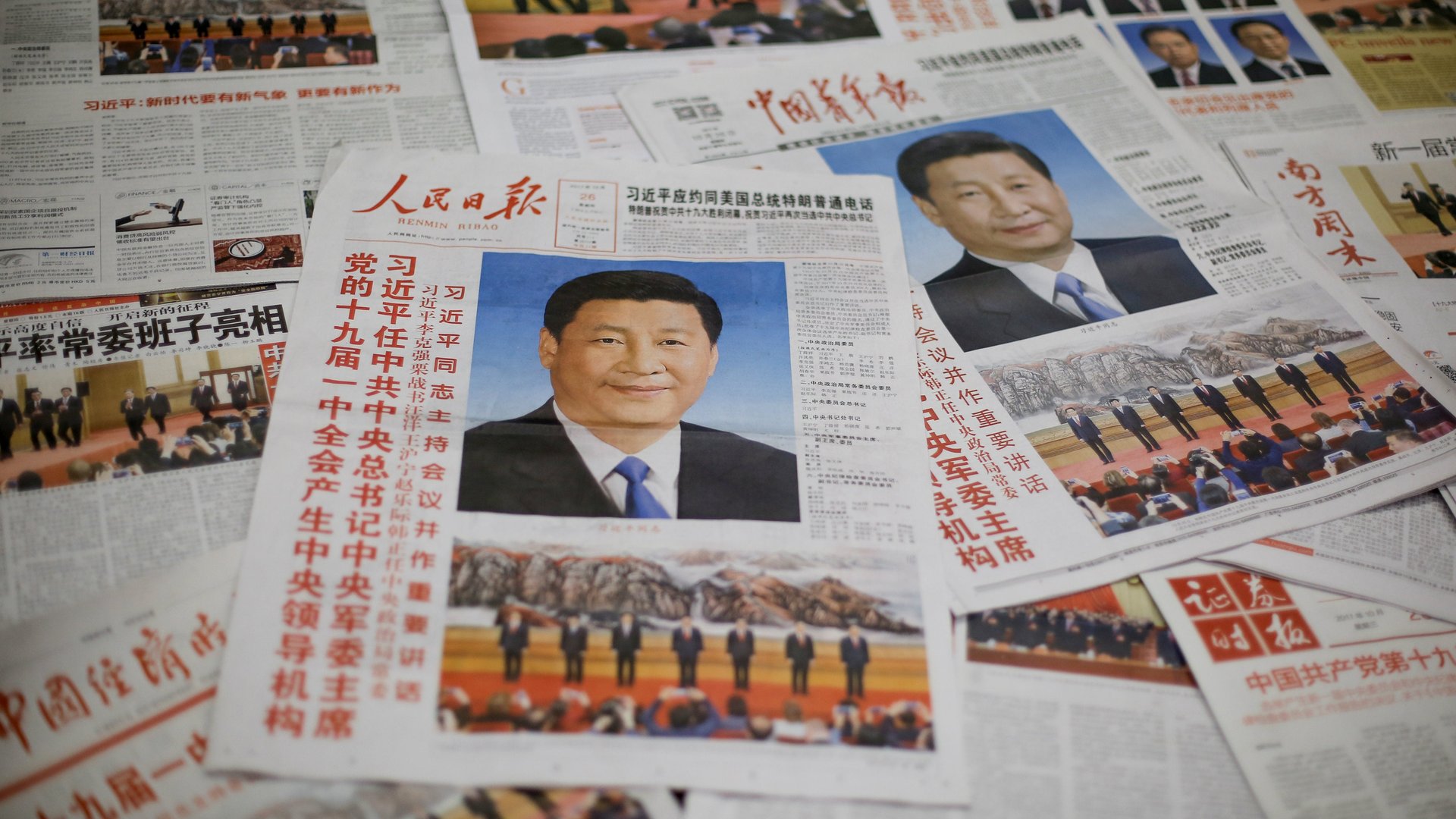Tensions between the US and China are spreading to news. Or is it fake news?
The US and China already appear on track for deeper tensions this year surrounding trade and technology. Now Beijing and Washington look set to also spar over information and news media.


The US and China already appear on track for deeper tensions this year surrounding trade and technology. Now Beijing and Washington look set to also spar over information and news media.
On Jan. 16, a bipartisan group of senators led by U.S. Senators Marco Rubio and Patrick Leahy wrote a letter calling on the Department of Justice to apply the Foreign Agents Registration Act (FARA) toward Chinese state-affiliated media outlets in the US. FARA, passed in 1938 to combat Nazi propaganda and typically applied towards lobbyists for foreign governments, requires anyone working for a “foreign principal” to register with the department and periodically disclose information about their activities and spending.
The move comes as US lawmakers grapple with a complex news landscape and concerns over attempts to influence the 2016 US election—and as news organizations backed by distant governments have begun to reach more Americans via social media platforms like Facebook or advertising in print media. The letter follows a similar recommendation from the U.S.-China Economic and Security Review Commission to Congress in November, and comes after Russian state-backed news outlet RT was made to register as a foreign agent in the US late last year.
“The Chinese Communist Party is clear in viewing media as a political tool—functioning as a ‘‘mouthpiece’’ for its official positions and in shaping public opinion,” the senators write.
Chinese state-owned media companies have been expanding aggressively in the US, hiring a mixture of Chinese staff and others, in some cases turning for advice to respected former US foreign correspondents. State-run news agency Xinhua, according to the letter, has bureaus in New York, Washington, D.C., Chicago, Los Angeles, Houston, and San Francisco. CGTN, the English-language offshoot of state broadcaster CCTV that opened its Washington office in 2012, claims to air in 30 million households in the United States. All of these organizations have massive (and possibly inflated) followings on Facebook—even though the social network is banned in China—and are also on Twitter, which is likewise blocked. CGTN has a YouTube channel.
Foreign Policy notes that while CGTN is relatively neutral when it comes to reporting US news, it represents the party line on issues like South China Sea and coverage of Xinjiang, a Muslim-majority region where China has rolled out intrusive efforts to surveil and restrict the movements of its citizens. Chinese state-run media, for its part, says its aim is “providing a different perspective” than, say US or European, media outlets.
China Daily, an English-language print outlet, meanwhile has for years paid to insert advertorials propagating Party views in papers including the New York Times and the Washington Post, again conveying official views on China issues. (The papers note that these inserts are clearly labeled advertising.)
Of the US-facing Chinese state media outlets, only the distributor of the China Daily in the US has registered under FARA, according to the senators’ letter. A recent filing shows that the company had a budget of nearly $7.8 million between May and October of 2017, which it used to distribute the paper and to place ads in the Wall Street Journal and the Washington Post.
There’s already precedent for the move the lawmakers are calling for. In November, the Department of Justice successfully got the Kremlin-backed Russia Today outlet to register as a foreign agent under FARA after US lawmakers raised concerns over RT’s role in spreading Russian propaganda. That led to RT journalists losing their press accreditation to cover Congress.
Still, the move should make all journalists uneasy. The biggest concern? That “reciprocity,” in practice, deteriorates into tit-for-tat retaliation.
It’s already tough enough for foreign journalists to cover China, where they face difficulties getting visas and restrictive rules about reporting. A war over the media would exacerbate problems for well-meaning reporters in both countries. Days after RT was made to register under FARA, for example, Moscow retaliated by passing a law that would require Voice of America and CNN’s branches in Russia to do the same.
It’s unclear how many people the US-facing content from Chinese state media is reaching at the moment, or who they are. It’s plausible that with time, their reach could equal or surpass that achieved by Russia’s RT, which had at least 35 million daily viewers as of 2016.
They can do that in part because they have something their private US counterparts increasingly don’t—money. American legacy publishers are competing with digital upstarts and solo bloggers for precious ad revenue, arbitrated by Facebook and a few other companies. Chinese state media outlets, should they want to, can pay top dollar (paywall) for both journalists and reach, with little regard for their bottom line. According to a paper from the University of Notthingham’s China Policy Institute, the top four state-backed outlets received $6 billion from the Chinese government in 2008 to expand overseas.
Curbing China and Russia’s ability to broadcast in the United States might please consumers wary of fake news and foreign propaganda invading their Facebook feeds. But it would move Washington a tiny bit closer toward Beijing and Moscow’s model of state control. That could damage US credibility when it advocates for a free and fair press, as it often has globally. And it would come as Trump continues to berate American press for spreading “fake news” against him.
Joel Simon, executive director of the Committee to Protect Journalists, argues that limiting foreign state-backed media’s press freedom will only embolden it in its mission to polarize America. “Allowing any government—especially the current US administration—to determine what is journalism and what is not is a terrible idea,” he writes.